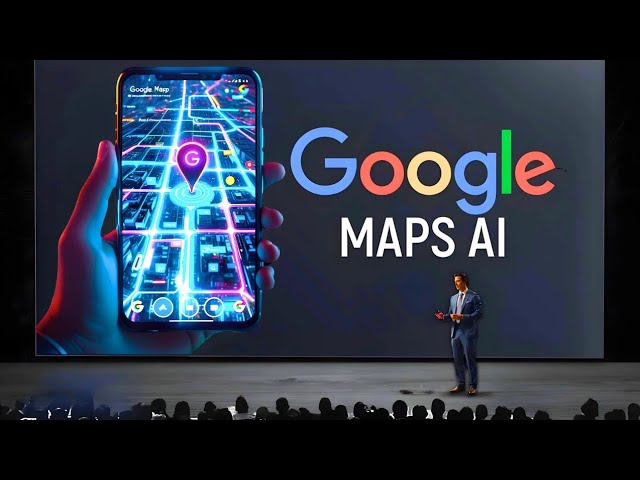Google Maps AI search is set to redefine the way we navigate the world. With a groundbreaking update, Google has integrated advanced artificial intelligence (AI) into its mapping application, allowing users to receive real-time, conversational answers to their inquiries. This innovative approach enhances not just how we find directions, but also how we interact with our surroundings, making travel more intuitive and engaging.
Google Maps AI Search: A New Dimension in Navigation
The introduction of Google Maps AI search brings a significant leap forward in navigation technology. Users can now ask questions in natural language, such as “What are the best coffee shops nearby?” or “Can I find a gas station that’s open 24/7?” This capability is powered by Google’s state-of-the-art Bard AI, which processes queries and generates relevant answers instantaneously, transforming a simple map into a comprehensive travel companion.
The Power of Conversational AI in Navigation
With this AI-enhanced feature, users no longer need to sift through menus or endless lists of options. Instead, Google Maps AI search understands the context of questions and provides immediate, tailored responses. For instance, if a user is exploring a new city and asks for nearby attractions, the AI will consider factors such as distance, user ratings, and the time of day to recommend the most suitable options.
Personalizing the Travel Experience
Beyond basic directions, the AI’s ability to learn from user preferences allows Google Maps to deliver personalized suggestions. Frequent visitors to a particular type of restaurant or activity can expect the app to highlight similar places, enhancing their experience and encouraging exploration of local gems. This personalized touch fosters a deeper connection between users and their environment, turning every journey into a unique adventure.
Contextual Awareness: Anticipating User Needs
One of the most impressive features of Google Maps AI search is its contextual awareness. The AI is capable of interpreting questions in relation to the user’s current location and circumstances. For example, if someone is stuck in traffic and asks, “What’s a quicker route to my meeting?” the AI can provide alternative paths that not only avoid delays but also factor in real-time traffic conditions.
The addition of AI enhances Google Maps’ functionality in complex situations. Whether navigating a bustling urban area or exploring rural paths, users can now request guidance tailored to their immediate environment. For example, asking, “Where’s the nearest hospital?” or “What’s the safest route to walk at night?” enables Google Maps to respond with timely and relevant information that prioritizes user safety.
Enhancing Safety in Emergencies
In critical situations, the Google Maps AI search feature becomes invaluable. Users can rapidly access essential services such as hospitals, police stations, or emergency shelters with just a quick query. This capability is particularly beneficial in emergency scenarios, where quick access to accurate information can make a significant difference.
Commitment to User Privacy and Data Security
As with any technology that utilizes user data, privacy concerns are crucial. Google reassures users that it employs stringent measures to protect personal information while maintaining transparency about data usage. Users have the option to manage their privacy settings, allowing them to decide what information they wish to share, making their experience both secure and personalized.
Future of Navigation with Google Maps AI
The launch of Google Maps AI search is merely the beginning of a broader vision for navigation powered by AI. As Google continues to enhance its technology, users can expect innovative features that will further personalize their travel experiences. Future updates may include enhanced real-time translations for international travelers, augmented reality navigation guides, and predictive analytics that anticipate user needs based on their habits and preferences.
Embracing the AI Revolution in Navigation
In summary, Google Maps AI search represents a revolutionary advancement in how we navigate our world. By providing real-time, contextual answers and personalized recommendations, Google Maps evolves beyond a simple mapping tool into an intelligent travel assistant. As users embrace this new technology, the journey ahead promises to be more intuitive, informed, and connected than ever before.
Google Gmail AI Features
Google has enhanced Gmail with new AI tools: “Help Me Write” and “Polish.” These features streamline email drafting and editing, making composition faster and more effective.
“Help Me Write” assists in creating personalized drafts, while “Polish” refines content for clarity and professionalism. Currently available for Google One Premium and Workspace users, these updates aim to simplify email writing and improve user productivity.



